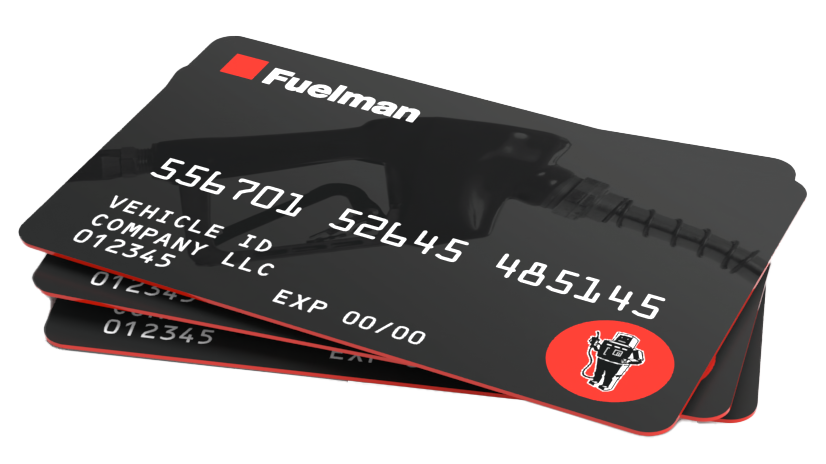Fuel surcharges are a way for carriers to protect themselves in case of fuel price fluctuations. With rising fuel prices, a fuel surcharge becomes even more important for carriers who book months or even days in advance.
For both short and long trips, a fuel surcharge will ensure that every trip is profitable. Keep reading to learn how fuel surcharges work and how to calculate a fuel surcharge.
What Are Fuel Surcharges?
A fuel surcharge is a calculation or projection of price differences in fuel. It can be a charge for the total cost of fuel, or as a percentage added to the base cost.
What is fuel surcharge? In the simplest sense, a fuel surcharge is the difference between the cost of fuel quoted, and the actual cost at the time of shipment. There is no standard government regulation for fuel surcharges so each carrier can set fuel surcharges or fees.
What Affects the Cost of Fuel Surcharges?
Carriers get to decide their formula for fuel surcharges. But in all cases, the three variables used to determine the cost are as follows:
Fuel Base Price
The fuel base price is the actual fuel costs at the time of booking. This is used as the basis of fuel surcharge calculation.
Truck Fuel Economy
This is the miles per gallon of fuel a truck can drive, which is also regarded as the consumption. Truck fuel economy will vary based on the trucks, haul, and driving conditions. Trucking companies will know the truck economy and how it affects the total fuel surcharge.
Fuel Price Change
The fuel price change is the updated diesel costs at the time of shipment. If the price has increased, this will lead to the fuel surcharge. For example, if the fuel estimate when booking was $2 per gallon, and the cost per gallon at the time of shipment is $2.50, then the price difference will be $0.50 in total.
How to Calculate Fuel Surcharges
A fuel surcharge is calculated by multiplying the difference in price per mile in fuels prices by the distance traveled. This gives the total fuel surcharge.
For this, you need to take into account more than just fuel price changes. Drivers can start by using a calculating cost per mile worksheet to get a clear idea of cost per mile and total costs. Use this as a reference when calculating fuel surcharges.
Here is how a fuel surcharge is calculated:
- Original Fuel Price — Updated Fuel Price = Difference in Fuel Cost
- Difference in Fuel Cost / Miles Per Gallon = Cost Per Mile
- Cost Per Mile x Distance Traveled = Surcharge
Example of Fuel Surcharges
Here is an example of how a fuel surcharge works:
- Original Fuel Price: $4.00
- Updated Fuel Price: $4.75
- Difference in Fuel Cost: $0.75
- Miles Per Gallon (MPG) = 7 miles
- Cost Per Mile = $0.11
- Distance Traveled = 1,255 miles
- Fuel Surcharge = $138.05
How Drivers and Shippers Can Effectively Manage Fuel Surcharge
Fuel surcharges can be a frustrating additional expense for shippers, especially while fuel prices are dramatically increasing. Cost of fuel is out of driver’s control, making price fluctuation a possible major additional business expense.
To reduce costs for both clients and overhead, drivers and shippers can work to reduce costs per load or budget in fees. Below you’ll find some constructive strategies to reduce fuel surcharges or manage unexpected expenses.
Consolidate Shipments
If you can consolidate less than truckload shipments into a full truckload, you will have fewer fees. The fees can be shared by the multiple shippers, reducing total costs for everyone.
Check Regional and National Partnerships
As a shipper, researching regional and national partnerships can lead to significant savings. Each freight carrier has different services and specialties. That means you may be able to find better rates for short trips with one carrier and long trips with a different carrier.
If you’re based on the East Coast and you need to ship to the West Coast, a local carrier may not be the one who can provide you with the best quote. Find more than one carrier, if needed, to get the best rates and save on fuel surcharges.
Increase Visibility of Costs
As a driver or carrier, it is important to keep clear documentation of costs. This can help in justifying a fuel surcharge or other fees. Clear records of expenses can increase shipper’s confidence and build trust.
The U.S. Department of Energy sets the interval and source of average fuel prices weekly. Drivers can use this as a neutral reference for original fuel costs and fuel surcharges. Keep documentation of all other costs to justify costs to the business.
Budget Fees
Some drivers and carriers prefer to include fees rather than a fuel surcharge. Over time you can identify fuel cost trends from invoices. This can be used to establish a trend for fuel surcharges and build these fees into your budget.
This cannot be 100% predictable as other events can affect fuel prices. However, if you build in competitive fees that protect from significant losses, charging fees upfront can be a way to avoid fuel surcharges and build shipper trust.
Putting It All Together
How are fuel surcharges calculated? Well, that depends on the carrier or driver. Fuel surcharges are in your hands.
Basic fuel surcharges are calculated by multiplying the difference in fuel price per mile by the total miles of the shipment. However, to simplify surcharges, some carriers choose to charge fees instead of a fuel surcharge.
Fuel is usually the largest expense per shipment. For this reason, learning to accurately calculate fuel surcharges and total shipping costs will ensure a good profit on every shipment.
FAQ
Fuel surcharges can range from $1.50 to $8. Some fuel surcharges are calculated as a percentage of total costs, which averages to about 8% of fuel costs.
A fuel surcharge is a way for carriers to protect themselves in the event of fuel cost variations. Loads can be booked months or years in advance and fuel is a major expense in trucking. Carriers can protect themselves from loss by adding a fuel surcharge to protect against fuel price fluctuations.
When a company pays a 100 fuel surcharge, the whole surcharge is paid to the driver.




